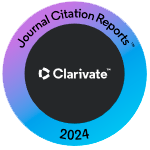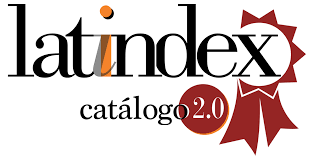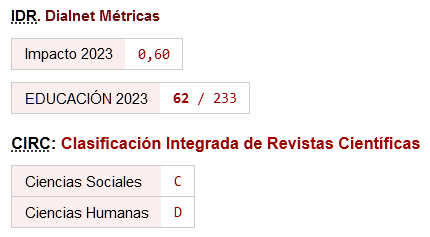Perception of the students of Pedagogy of the University of Granada on the attitudes of promotion of creativity in the classroom: evaluative study
DOI:
https://doi.org/10.46661/ijeri.4508Keywords:
Perception, Creativity, University Students, Attitudes, ClassroomsAbstract
We present a scientific study carried out by the University of Granada, whose general interest lies in knowing the perceptions of future educators about the attitudes that are developed in the university classroom for the promotion of creativity in the student body. For this purpose, and after authorization by the coordination of the degree, a descriptive and non - experimental research was designed, focusing mainly on the application of the standardized survey technique on a sample of 244 (N = 558) subjects officially enrolled in the four courses that integrate the degree of Pedagogy at the University of Granada (Spain) during the academic year 2017 / 18, and thanks to which, it has been proven with absolute vigor that the students of Educational Sciences positively value behaviors and novel class initiatives that promote creativity as a competence to develop, although their participation in them is rather low.
Downloads
References
Aranguren, M. (2015). Influencia del Conocimiento Previo Sobre el Test de Pensamiento Creativo de Torrance. International Journal of Psychological Research, 8 (2), 75 – 89.
Azevedo, I., Morais, M. F. & Martins, F. (2017). Educação Para a Criatividade em Adolescentes: Uma Experiência com Future Problem Solving Program Internacional. REICE, 15 (2), 75 - 87.
Baer, J. (2017). Content Matters: Why Nurturing Creativity is so Different in Different Domains, en Beghetto, R.A. & Sriraman, B. (Eds.). Creative Contradictions in Education: Cross Disciplinary Paradoxes and Perspectives (pp. 129 - 140). Zúrich: Springer.
Balaj, A. (2015). ¿Cómo Desarrollar la Creatividad Infantil?. Madrid: Kolima.
Ballester, L., Nadal, A. & Amer, J.A. (2017). Métodos y Técnicas de Investigación Educativa. Palma de Mallorca: Universidad de las Islas Baleares.
Bisquerra, R. (2014). Metodología de la Investigación Educativa. Madrid: La Muralla.
Cabrera, J. & De La Herrán, A. (2015). Creatividad, Complejidad y Formación: Un Enfoque Transdisciplinar. Revista Complutense de Educación, 26 (3), 505 - 526.
Campos, G. (2018). Percepciones del Alumnado Sobre la Relevancia de la Creatividad en el Proceso de Enseñanza – Aprendizaje. REIDOCREA, 7, 1 – 16.
Egan, A. et al. (2017). Developing Creativity in Higher Education for 21st Century Learners: A Protocol for a Scoping Review. International Journal of Educational Research, 82 (3), 21 - 27.
Haring – Smith, T. (2006). Creativity Research Review: Some Lessons for Higher Education. Peer Review, 8 (2), 23 – 35.
Higuchi, T. et al. (2016). Creativity Effects of Idea – Marathon System: Torrance Tests of Creative Thinking, en Skulimowski, A.M.J. & Kacprzyk, J. (Eds.). Knowledge, Information and Creativity Support Systems: Recent Trends, Advances and Solutions (pp. 185 – 200). Zurich: Springer.
Hong, E., Part, R. & Rowell, L. (2017). Children’s and Teachers’ Conceptions of Creativity, en Beghetto, R.A. & Sriraman, B. (Eds.). Creative Contradictions in Education: Cross Disciplinary Paradoxes and Perspectives (pp. 303 - 331). Zúrich: Springer.
López, L. & Fernández, A. (2018). Creatividad en la Infancia Temprana: Análisis Cualitativo en un Contexto Educativo. REIDOCREA, 7, 43 - 54.
Medina, N. et al. (2017). La Creatividad en los Niños de Preescolar: Un Reto de la Educación Contemporánea. REICE, 15 (2), 153 - 181.
Mynbayeva, A. Vishnevskaya, A. & Sadvakassova, Z. (2016). Experimental Study of Developing Creativity of University Students. Future Academy Multidisciplinary Journal, 217, 407 – 413.
Molina, M.D. (2015). Estadística Aplicada a las Ciencias Sociales. Alicante: Universidad de Alicante.
Rampersad, G. & Patel, F. (2014). Creativity as a Desirable Graduate Attribute: Implications for Curriculum Design and Employability. Asia – Pacific Journal of Cooperative Education, 15 (1), 1 – 11.
Raso, F. & Santana, D. (2019). Percepciones del Futuro Pedagogo Sobre la Metodología de Enseñanza de la Creatividad. REICE, 17 (1), 73 - 89.
Richardson, C. & Punyashloke, M. (2017). Learning Environments That Support Student Creativity: Developing the SCALE. Thinking Skills & Creativity, 27, 45 – 54.
Rodrigues, A. et al. (2018). Conceções de Alunos Sobre Criatividade: Um Estudo de Caso no 3º Ciclo do Ensino Básico. REICE, 16 (2), 99 - 115.
Solatxi, E. (2014). Análisis del Concepto de Creatividad y Metodologías Procesuales en Treinta Artistas Vascas Contemporáneas. Tesis Doctoral: Universidad del País Vasco.
Sriraman, B. & Leikin, R. (2017). Commentary on Interdisciplinary Perspectives to Creativity and Giftedness, en Leikin, R. & Sriraman, B. (Eds.). Creativity and Giftedness: Interdisciplinary Perspectives From Mathematics and Beyond (pp. 259 – 264). Zurich: Springer.
Taha, V.A., Tej, J. & Sirkova, M. (2015). Creative Management Techniques and Methods as a Part of the Management Education: Analytical Study on Students’ Perceptions. PROCEDIA, 197 (3), 1918 – 1925.
Tsai, K.C. (2013). A Review of the Effectiveness of Creative Training on Adult Learners. Journal of Social Science Studies, 1 (1), 17 – 39.
Downloads
Published
How to Cite
Issue
Section
License
Copyright (c) 2022 FRANCISCO RASO SANCHEZ, DAVID SANTANA ARANDA

This work is licensed under a Creative Commons Attribution-NonCommercial-NoDerivatives 4.0 International License.











